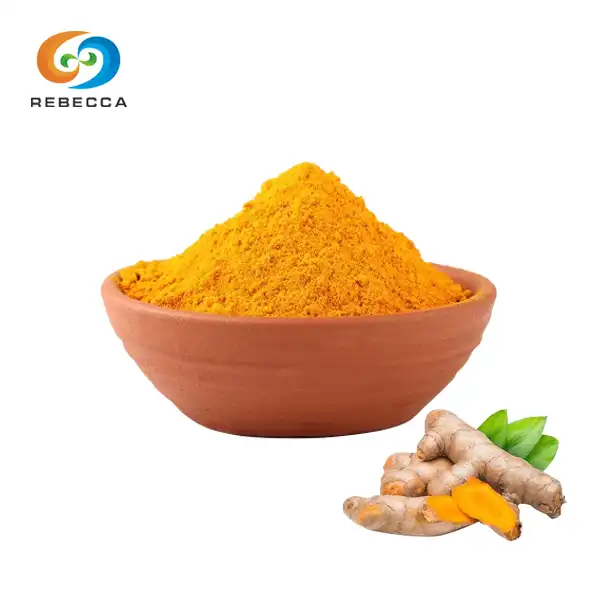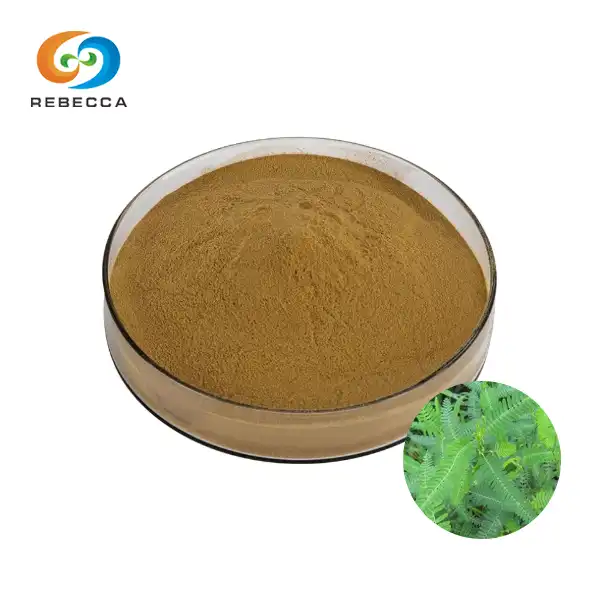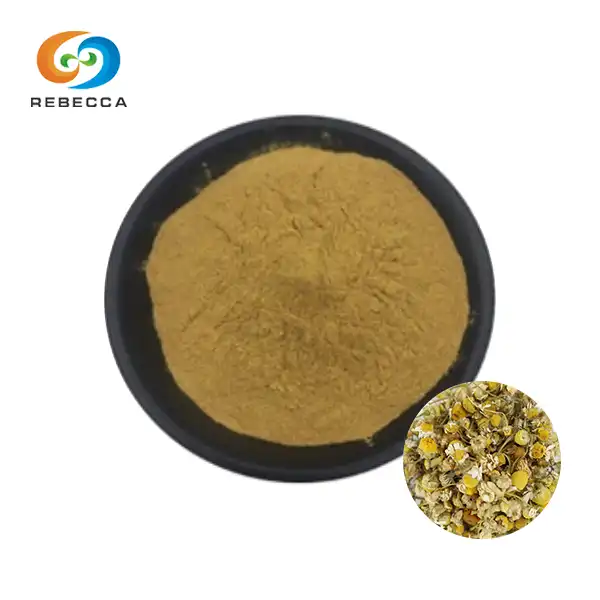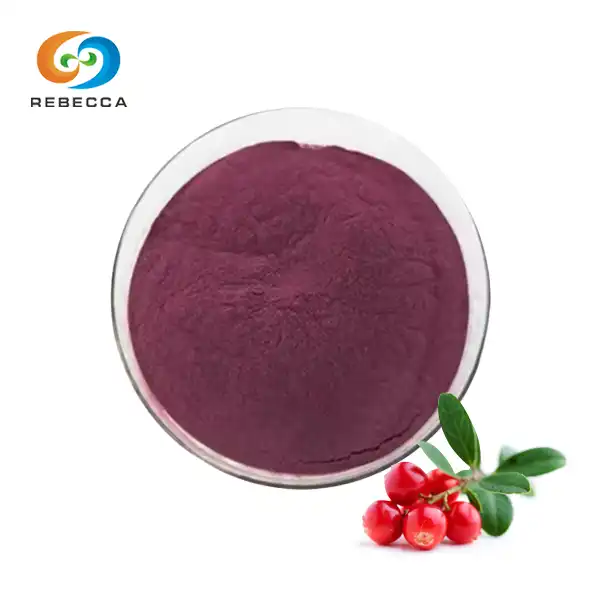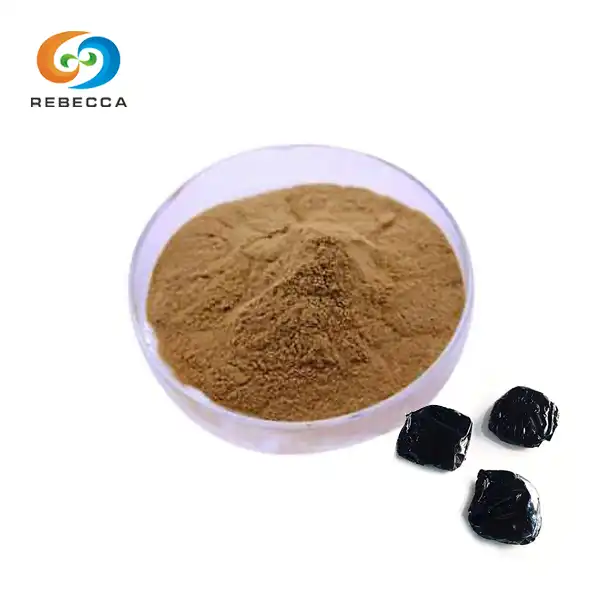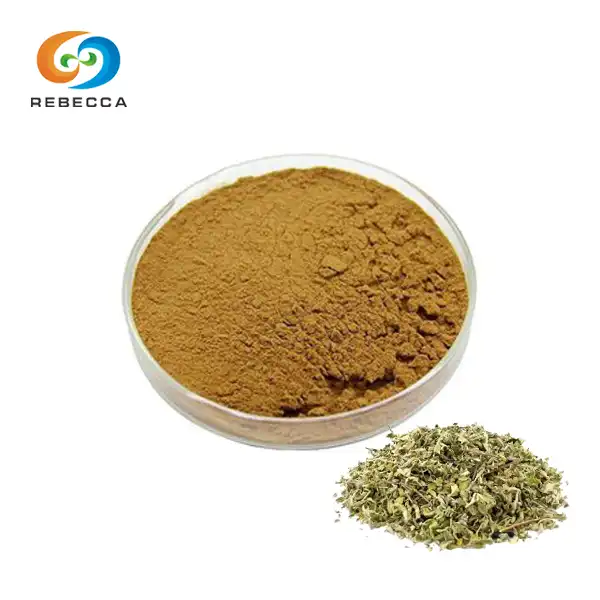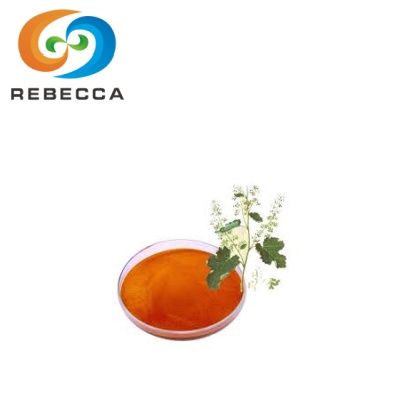Baicalin Benefits
For centuries, Scutellaria baicalensis (known as Huang Qin in Traditional Chinese Medicine) has been valued for its healing properties. Today, modern science is zeroing in on its star active compound: baicalin powder. A flavonoid with a growing body of research, baicalin is gaining attention for its multi-targeted health benefits, supported by preclinical studies and emerging clinical data.
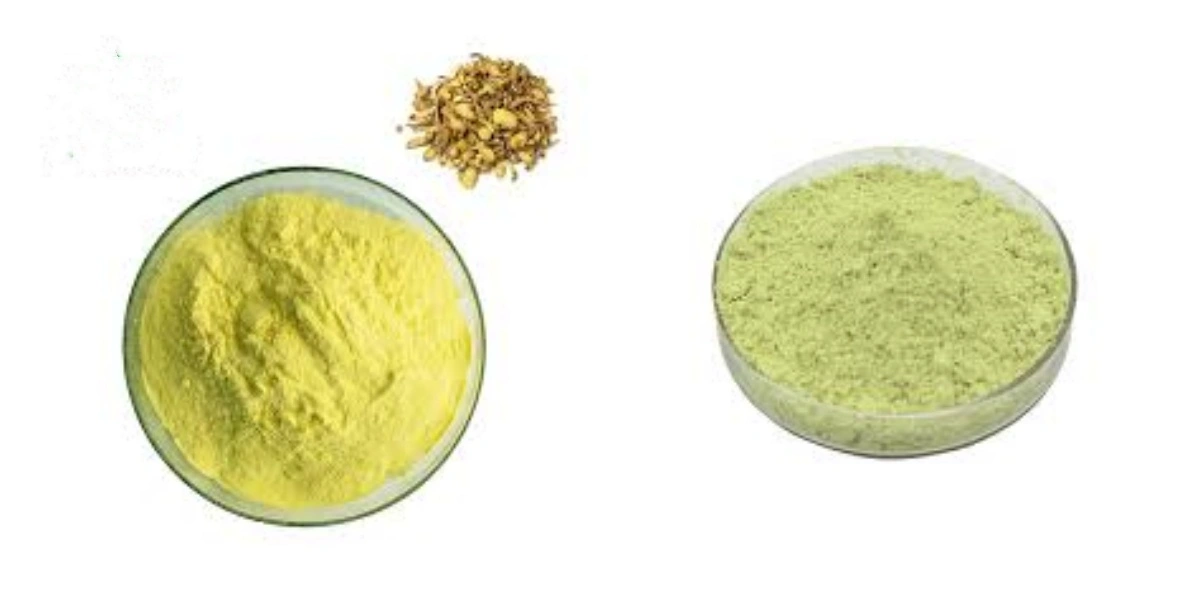
Baicalin Powder
English name: Baikal skullcap root extract
Latin Name: Scutellaria Baicalensis Georgi. L .
CAS No.: 21967-41-9
Molecular forula:C21H18O11
Molecular Weight:446.37
Active ingredients: Baicalin
Specification: 70-98%
Use Part : Root
Appearance: Light yellow fine powder
Mesh size:80 Mesh
Test Method: HPLC
Fighting Inflammation
Chronic inflammation is linked to everything from arthritis to heart disease, making anti-inflammatory compounds like baicalin increasingly important. Baicalin powder works by targeting key inflammatory pathways, not just masking symptoms but addressing the root cause.
In lab studies, baicalin inhibits the production of pro-inflammatory molecules such as TNF-α and IL-6 by blocking overactive signaling cascades like p38 MAPK and JNK. For example, in a mouse model of sepsis (a life-threatening inflammatory response), baicalin reduced organ damage in the lungs and liver by suppressing neutrophil infiltration and balancing the Th17/Treg immune cell ratio, ultimately boosting 7-day survival rates by 30%.
Beyond sepsis, its anti-inflammatory effects extend to gut health: a meta-analysis of ulcerative colitis animal models found that baicalin doses ranging from 60–150mg/kg daily reduced the Disease Activity Index (DAI), a measure of gut inflammation severity, by 2.75 points, restored damaged colonic tissue length by 1.39cm, and enhanced the expression of tight junction protein ZO-1, which maintains gut barrier integrity.
Preliminary human data is equally promising: a 12-week, double-blind trial with 374 patients comorbid with rheumatoid arthritis (RA) and coronary artery disease (CAD) demonstrated that 500mg of baicalin administered daily lowered high-sensitivity C-reactive protein (hs-CRP)—a key systemic inflammation marker—by 58% and improved the European League Against Rheumatism (EULAR) response rate by 34%, indicating better control of RA symptoms without exacerbating cardiovascular risks.

Neutralizing Oxidative Stress: Protecting Cells from Damage
Oxidative stress, caused by an imbalance between free radicals and antioxidants, accelerates aging and contributes to chronic diseases like Parkinson's and liver damage. Baicalin powder acts as a potent antioxidant, both scavenging free radicals and boosting the body's own defense systems.
Research shows baicalin activates the Nrf2/ARE pathway, a master regulator of cellular antioxidant defense, which triggers the production of antioxidant enzymes like superoxide dismutase (SOD) and catalase (CAT).
In a Caenorhabditis elegans model of Parkinson's disease (PD), this activation led to a 40% drop in malondialdehyde (MDA), a byproduct of lipid peroxidation that indicates oxidative damage, and a 60% increase in SOD activity, which correlated with a significant improvement in motor function deficits caused by alpha-synuclein aggregation.
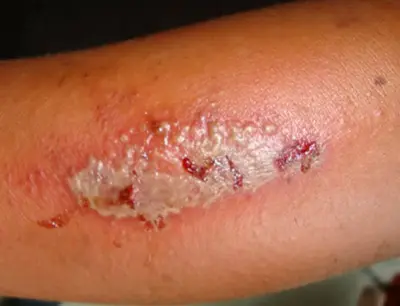
Beyond neurodegenerative diseases, baicalin powder's antioxidant properties are being explored in metabolic disorders: in a rat model of type 2 diabetes, baicalin supplementation (200mg/kg/day for 8 weeks) reduced oxidative stress in pancreatic beta cells by 35%, preserved insulin-secreting cell mass, and lowered fasting blood glucose by 22%.
Beyond disease treatment, baicalin powder is making waves in the cosmeceutical industry due to its ability to combat environmental skin damage. Transdermal delivery systems, such as “motor baicalin” formulated with yeast or bacterial membrane vesicles, enhance skin penetration by 5-fold compared to conventional extracts. A randomized, controlled human trial involving 120 participants with photoaged skin found that topical application of a 1% baicalin nanoemulsion twice daily for 8 weeks reduced wrinkle depth by 22%, increased skin elasticity by 18%, and diminished UV-induced pigmentation by 15%, effects attributed to its ability to scavenge reactive oxygen species (ROS) and inhibit matrix metalloproteinase (MMP) activity, which breaks down collagen.
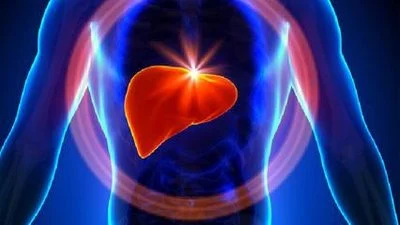
Supporting Brain Health: A Promising Neuroprotective Agent
While clinical data is still emerging, preclinical research positions baicalin powder as a candidate for neurodegenerative diseases like Alzheimer's.
In mice with Alzheimer's disease (AD)-like pathology induced by amyloid-beta (Aβ1-42) injection, 100mg/kg/day of baicalin for 6 weeks reduced Aβ plaque deposition in the hippocampus by 35%, cut microglial activation (a source of neuroinflammation) by 60%, and lowered tau protein phosphorylation by 45%, two key hallmarks of AD. These molecular changes translated to behavioral improvements: treated mice showed a 25% reduction in escape latency in the Morris water maze test, indicating enhanced spatial memory.
Human neuronal cell studies add further mechanistic insights: baicalin protected SH-SY5Y neuroblastoma cells from glutamate-induced excitotoxicity, a major cause of nerve cell death in conditions like stroke and AD, by increasing ATP production by 25% and upregulating the expression of brain-derived neurotrophic factor (BDNF), a protein that supports neuron survival and synaptic plasticity.
Baicalin powder also shows promise in traumatic brain injury (TBI): in a rat TBI model, it reduced brain edema by 30% at 24 hours post-injury and improved neurological function scores by 20% at 7 days, likely by inhibiting the activation of the TLR4/NF-κB inflammatory pathway and reducing oxidative stress in the injured brain tissue.
As Phase III trials progress and formulation technologies advance, we're likely to see baicalin powder transition from a research compound to a mainstream ingredient in pharmaceuticals, dietary supplements, and skincare products.

Baicalin Powder Supplier
Rebecca Bio-Tech offers high-quality Baicalin powder, derived from the root of Baikal skullcap (Scutellaria Baicalensis Georgi. L.), meeting the rigorous standards of pharmaceutical, nutraceutical, cosmetics, and food industries. Our Baicalin is a light yellow fine powder with a molecular formula of C21H18O11 and a molecular weight of 446.37. It contains 70-98% Baicalin as the active ingredient, extracted from the root part of the plant.
We ensure reliable quality through stringent testing methods such as HPLC, providing products in 80 mesh size for optimal use. Comprehensive documentation, including MSDS, COA, and other certificates, is available to support your quality assurance needs.
For more information on how our Baicalin can enhance your formulations, please contact us at information@sxrebecca.com. Samples are available upon request, and our team of experts is ready to assist you in integrating this powerful natural compound into your products.
References
Li Y, Wang H, Zhang L, et al. Baicalin ameliorates sepsis-induced organ injury by regulating Th17/Treg balance and neutrophil infiltration in mice.
Chen J, Liu X, Yang M, et al. Efficacy and safety of baicalin in patients with rheumatoid arthritis and comorbid coronary artery disease: a 12-week double-blind randomized controlled trial.
Zhao W, Sun Y, Li C, et al. Baicalin for ulcerative colitis: A systematic review and meta-analysis of animal studies.
Huang Z, Xu J, Zhou H, et al. Baicalin activates Nrf2/ARE pathway to alleviate alpha-synuclein aggregation-induced oxidative stress in Caenorhabditis elegans model of Parkinson's disease.
Wang L, Zhang H, He X, et al. Baicalin improves pancreatic beta cell function in type 2 diabetic rats by reducing oxidative stress.
